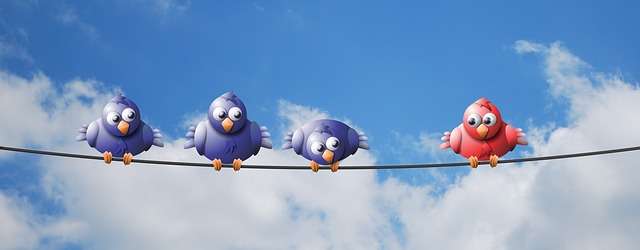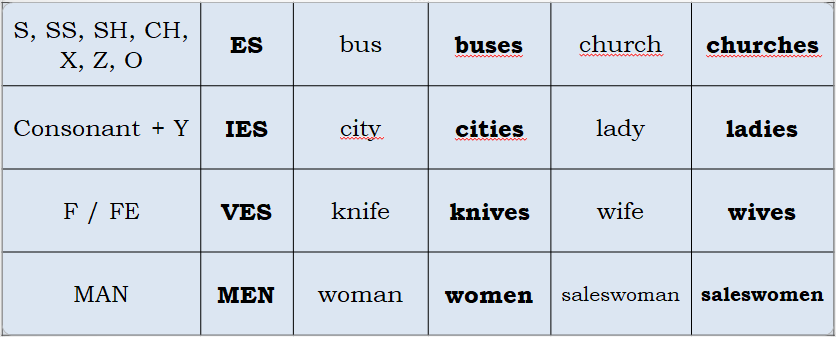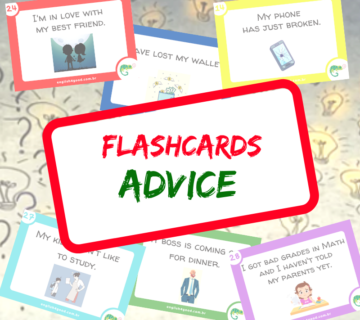
According to the website vocabulary.com, the word plural means more than one. Well, that is the definition of plural.
Substantives in English can be classified as Countable and Uncountable.
Countable nouns can be singular or plural:
- Dog – dogs
- House – houses
- Person – people
However, uncountable nouns don’t have a plural form:
- Money
- Air
- Furniture
Plural rules
Basically, we add “S” to the and of a noun.
- Table – tables
- Plane – planes
- Doctor – doctors
However, in some cases, we have to follow some rules, depending on how the noun ends.
S/SS/CH/SH/Z/O/X
- Words ending in S/SS/CH/SH/Z/O/X get ES at the end.
- Bus – Buses
- Cross – Crosses
- Church – Churches
- Dish – Dishes
- Buzz – Buzzes
- Fox – Foxes
- Tomato – Tomatoes
But, pay attention:
fotos, pianos, halos, vídeos, kilos, etc., are some exceptions of that rule.
F / FE
2. Words ending in F / FE get VES instead of F/FE:
- Wife – Wives
- Leaf – Leaves
- Knife – Knives
CONSOANTE + Y
3. Words ending in CONSOANT + Y get IES instead of Y:
- Country – Countries
- Baby – Babies
- Family – Families
Attention:
- Boy – Boys
- Ray – Rays
Here, the Y is not preceded by consonants, so the rule does not apply.
Irregular Plural
Some words do not follow those rules, we have to memorize them. For example:
- Mouse – Mice
- Person – People
- Child – Children
- Goose – Geese
- Foot – Feet
- Tooth – Teeth
- Man – Men
- Woman – Women
- Fish – Fish
- Deer – Deer
- Sheep – Sheep
Plural only
There is another group which singular for does not exist.
- Jeans
- Scissors
- Glasses
- Pants
- Shorts
- Pajamas
- Headphones
- News
- Gymnastics
- Economics
- Mathematics
Singular only
Another group never take any plural form:
- Luggage
- Furniture
- Information
Take a look:

Time to practice!
Download the worksheets with answers:




